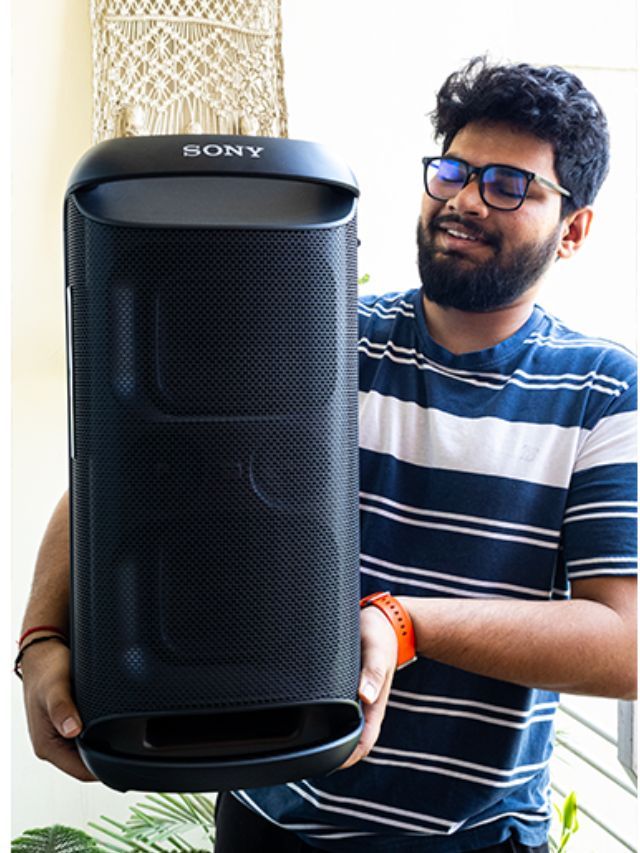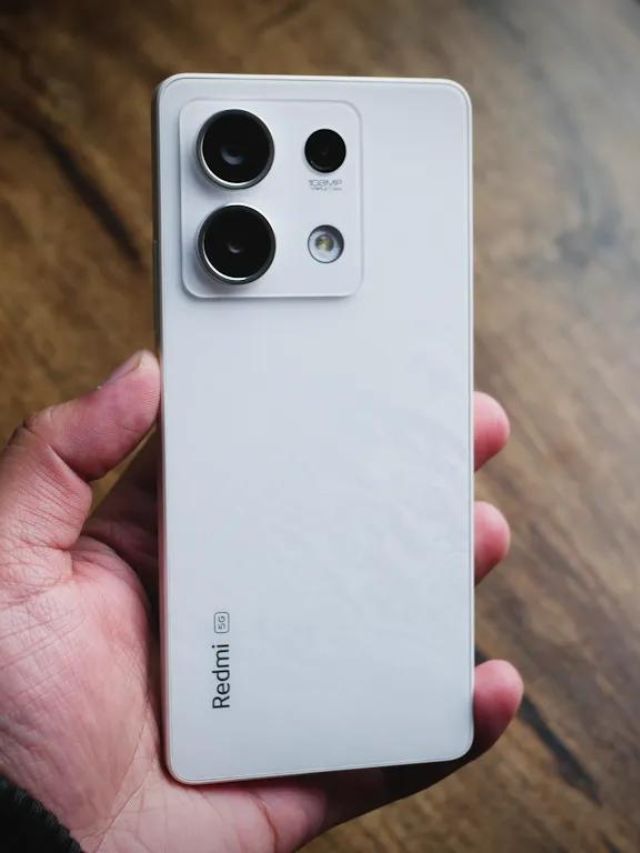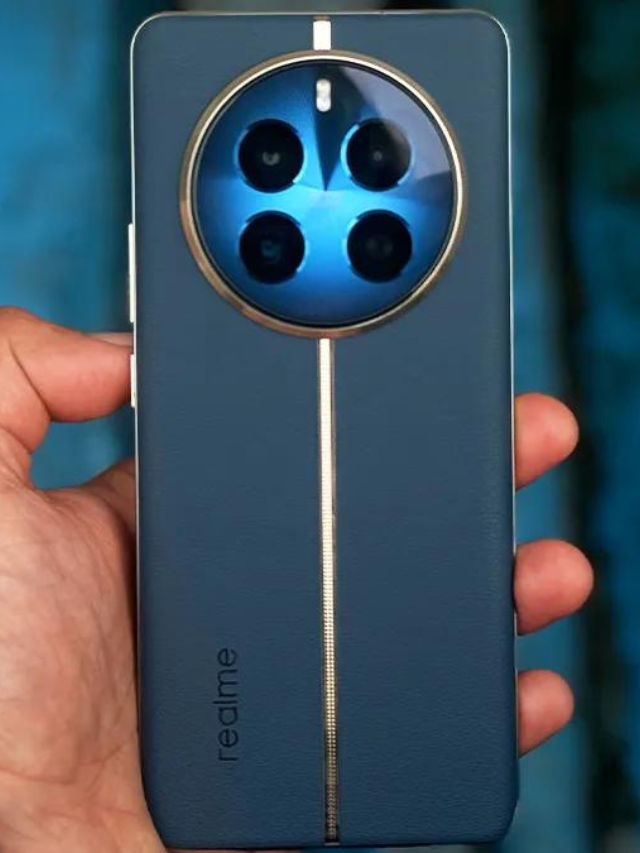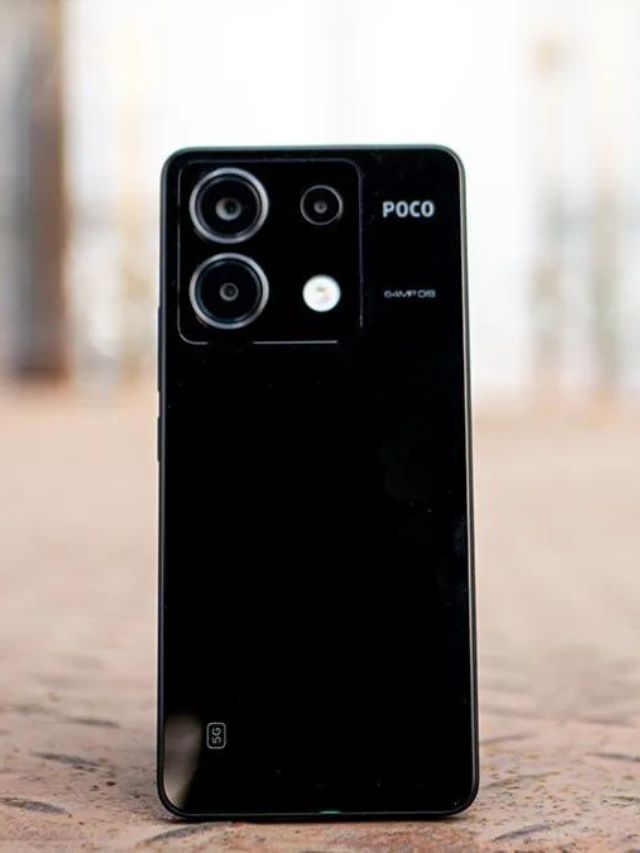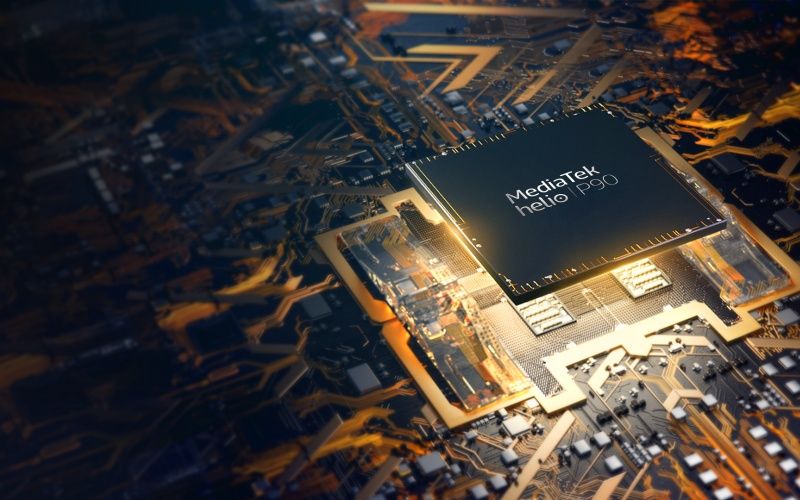
Earlier this month, Taiwanese chip designer MediaTek unveiled its latest mid-range mobile SoC, Helio P90. The Helio P90 comes with a new APU 2.0 fusion AI architecture, which MediaTek claims will allow for up to four times higher AI performance when compared to the Helio P70 chipset. While the first smartphones powered by the chipset are not expected to arrive before early next year, a device running on the Helio P90 has surfaced on the AnTuTu benchmark database.
First Helio P90 Benchmark Reveals Impressive Performance
The test device running on the MediaTek Helio P90 SoC achieved an overall score of 1,62,861 on the AnTuTu benchmark. That’s a decent improvement compared to the Helio P70, which was announced a few weeks back. The score also happens to be higher than what smartphones powered by Qualcomm’s Snapdragon 670 score in the same benchmark. Qualcomm Snapdragon 710, however, manages to perform slightly better than the Helio P90. The test device featured a 1080 x 2160 Full HD+ resolution display, 6GB of RAM, and 128GB of internal storage. Thanks to its impressive performance and an enhanced AI engine, the MediaTek Helio P90 may prove to be quite popular among Android OEMs next year.
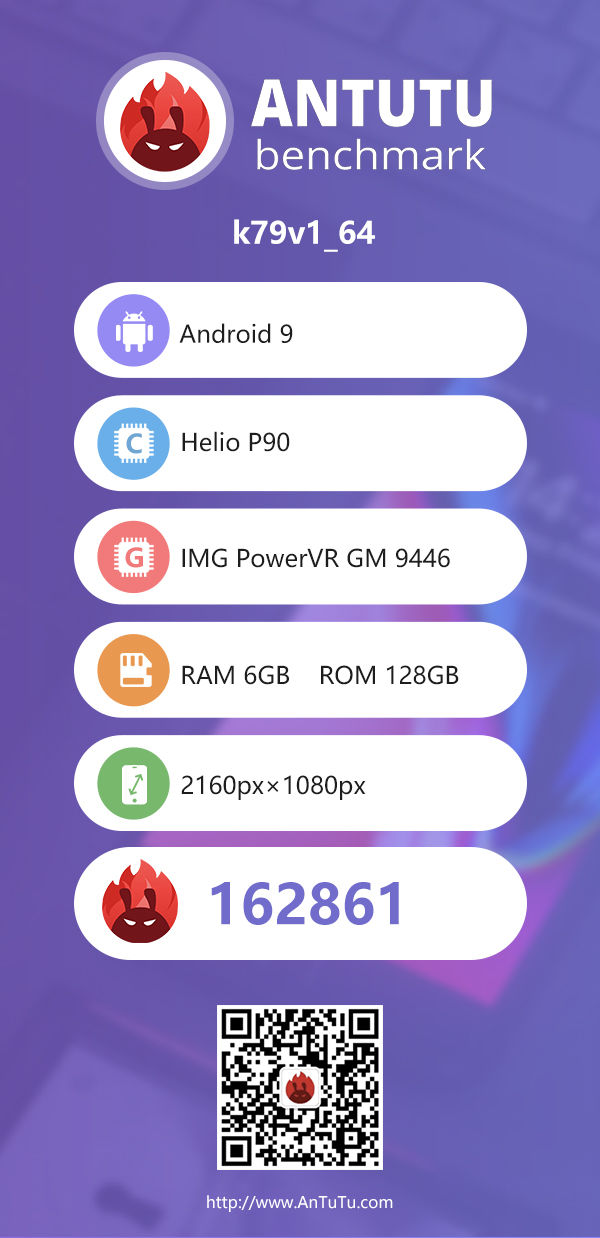
The MediaTek Helio P90 is an octa-core SoC featuring two ARM Cortex-A75 cores clocked at up to 2.0 GHz and six ARM Cortex-A55 cores clocked at up to 2.0 GHz. Like most modern mobile SoCs, the Helio P90’s eight cores are arranged in a big.LITTLE configuration. Taking care of the graphics processing a PowerVR GM 9446 GPU from Imagination Technologies. The SoC supports up to 8GB of 1866 MHz LPDDR4x memory, 1080 x 2520 Full HD+ resolution displays, and up to 48MP single or 24MP + 16MP dual cameras. In terms of connectivity, the Helio P90 offers Cat.12/13 4G LTE modem along with 4×4 MIMO, 3CA, 256QAM, and Dual 4G support. General connectivity features include Bluetooth 5.0, FM radio, Wi-Fi a/b/g/n/ac dual-band, GPS with A-GPS, GLONASS, BeiDou, and Galileo. The chipset is manufactured on a 12nm FinFET process by TSMC.





